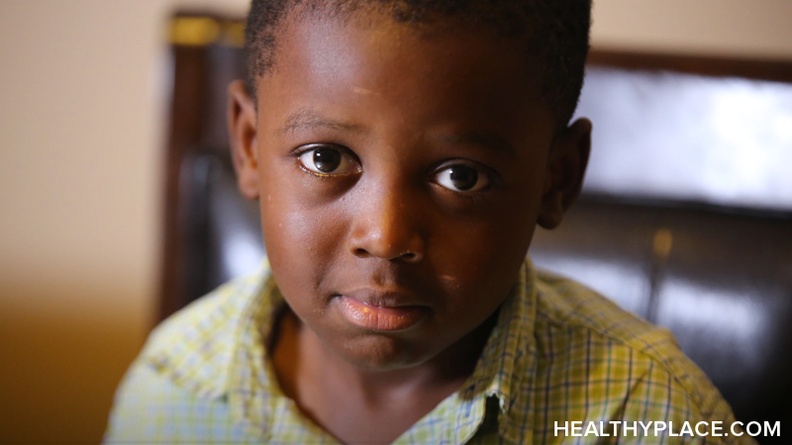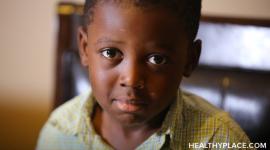Understanding School Refusal

Learn about school refusal; the signs and causes of school refusal and how school refusal is treated.
Refusal to go to school often begins following a period at home in which the child has become closer to the parent, such as a summer vacation, a holiday break, or a brief illness. It also may follow a stressful occurrence, such as the death of a pet or relative, a change in schools, or a move to a new neighborhood.
What is School Refusal?
School refusal is not a formal psychiatric diagnosis. School refusal, school avoidance, or school phobia, are terms used to describe the signs or anxiety a school-aged child has and his/her refusal to go to school. School refusal can be seen in three different types of situations, including the following:
- Young children going to school for the first time
This is a normal type of school refusal. This develops with a child's normal separation anxiety, or uneasiness about leaving a parent figure. This type of fear usually goes away within a few days of the child attending school. - Fear
Older children may have school phobia based on a real fear of something that may happen to them at school, such as a bully or a teacher being rude. In this situation, it is important to talk with your child to determine what is causing his/her fears. - Distress
The final type of school phobia is seen in children who are truly distressed about leaving their parent and going to school. Usually, these children enjoy school but are too anxious about leaving their parents to attend.
Facts About School Refusal
- School refusal is the third most common cause of children missing school.
- Fifty percent of children with school refusal have other behavioral problems.
- Twenty percent of parents who have a child with school refusal have a psychiatric problem.
- There is usually a strong bond between the parent and child.
- Children may be depressed.
- School refusal is more common in girls than in boys.
Signs of School Refusal
While every child is different, the following are some of the behaviors that may be present in your child:
- The child may complain of other symptoms (i.e., stomach ache, headache) that get better as soon as the child is allowed to stay home
- The child may tell you that he/she is anxious or afraid of a certain situation that happens at school
- The child may not want to leave the parent because of a change in the life of the child, such as the following:
- New school
- Has just moved
- New brother or sister
- A sick brother, sister, or parent
- Divorce
- Death in the family
How is School Refusal Diagnosed?
School refusal is usually diagnosed with a team approach, including your physician, you, the child, and teachers and counselors. Your child's physician will be involved to rule out any real medical problems that may be occurring. A complete history and physical examination will be done. School officials may be contacted to obtain more information.
School Refusal Treatment
Since every child is unique, each situation will be handled on an individual basis. The following are some of the interventions that may be used to help your child:
- Return the child to school. Make sure the school officials understand the situation and do not send the child home for the wrong reasons.
- Consider family counseling if other problems exist.
- Allow the child to speak and talk about his/her concerns and fears.
- Slowly separating the parent from the child in school may also be used. One approach is to have the parent sit with the child in the classroom at first, and then the parent may attend school, but sit in another room. Next, the parent may continue to get farther away.
- A referral to a child psychologist or psychiatrist may become necessary.
Additional tips for parents of students with school refusal can be found here.
Sources:
- American Family Physician, School Refusal in Children and Adolescents, Oct. 15, 2003.
- American Academy of Child and Adolescent Psychiatry, Children Who Won't Go To School, Facts for Families, No. 7; Updated July 2004.
- Cincinnati Children's Hospital Mental Center
- Burke AE, Silverman WK. The prescriptive treatment of school refusal. Clin Psychol Rev 1987;7:353-62.
APA Reference
Staff, H.
(2022, January 17). Understanding School Refusal, HealthyPlace. Retrieved
on 2026, January 19 from https://www.healthyplace.com/parenting/anxiety/understanding-school-refusal



